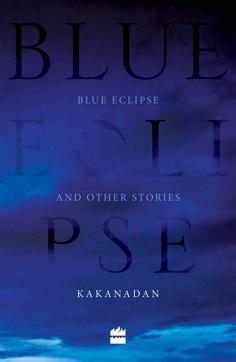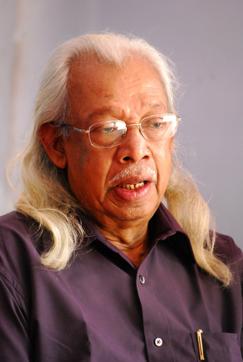No escape from the cesspool
Kakanadan approaches his characters, who are whores, drunkards, prostitutes, cretins, smugglers and drug dealers, with great humanism

Procrastination is perhaps not such a bad thing. It took me a long while to read Blue Eclipse and Other Stories by George Varghese Kakanadan, translated from the Malayalam by his son, Rishi Kakanadan. It is a slim book with 14 short stories. I kept delaying reading the book for reasons unknown to me until one day when I started reading it on a short bus ride. It may sound peculiar but I found the seclusion of the nearly-empty bus coach conducive to Kakanadan’s stories. A modernist like Kakanadan would have approved of this behaviour. Deferring the reading of these stories worked in my favour. Some texts open up in postponement. The delay aids the reading experience. Perhaps that’s the process of preparation before you actually embark upon reading the book. Silently contemplative and abstractionist in many ways, Kakanadan’s stories, which offer his meditations on life, morality, sex, and desire, amongst other things, mandate a state of mind or a sensibility which I discovered in waiting.

One of the major proponents of Modernism in Malayalam literature, Kakanadan was equally loved and reviled by critics in Kerala. He fashioned a unique literary voice and imagination with his attempts to merge existentialist concerns with Leftist politics. There are many parallels drawn between his writing and that of Camus, Kafka and other writers from the mould, who could have been an influence. But Kakanadan was unique in many ways. While reading the stories, I constantly thought about the challenges of translating his writing, which doesn’t lend itself easily to English, as mentioned by the novelist M Mukundan in a portrait of the writer included towards the end of the book. These stories are set in Mumbai, Delhi, Chennai, Germany – all places where Kakanadan lived and experienced life. Even in English translation, you are reminded of native Malayalam or the linguistic identity of the speaker or writer of these stories, which is a significant achievement.
Read more: Translating India: The difficulty of keeping yourself out of the original text
Kakanadan’s writing reverberates with whores, drunkards, prostitutes, cretins, smugglers and drug dealers, and he approaches these characters with great humanism. In Death of Mascarenhas, written as an elegy for the central eponymous character, his death is mourned by whores and prostitutes who remember him as a kind man who was their friend. They pour into the streets of Mumbai to mourn his death. Kakanadan equates the procession with an ‘endless, unknown pilgrimage’. In another story called Harkishanlal Sood, the eponymous character is a good-for-nothing who lives on the charity of his wife’s family and is miserable thinking about survival after her death. These stories are replete with characters who live in a morally ambiguous world, and yet you cannot despise them for what they do or say. They are caught in a cesspool from which they cannot escape. Such is the tragedy of modern life as Kakanadan saw it. Blue Eclipse, the title story, is a meditation on colour, life and existence akin to a painter’s canvas. In Madness, two strangers meet, have sex, and then the woman doesn’t want to have anything to do with the man anymore. She can’t even bear to look at him. For readers of Modernist writing, this premise will not evoke surprise but these stories still remain contemporary and relevant, which says so much about the world we inhabit and the quality of Kakanadan’s writing.
Kunal Ray teaches literary & cultural studies at FLAME University, Pune






